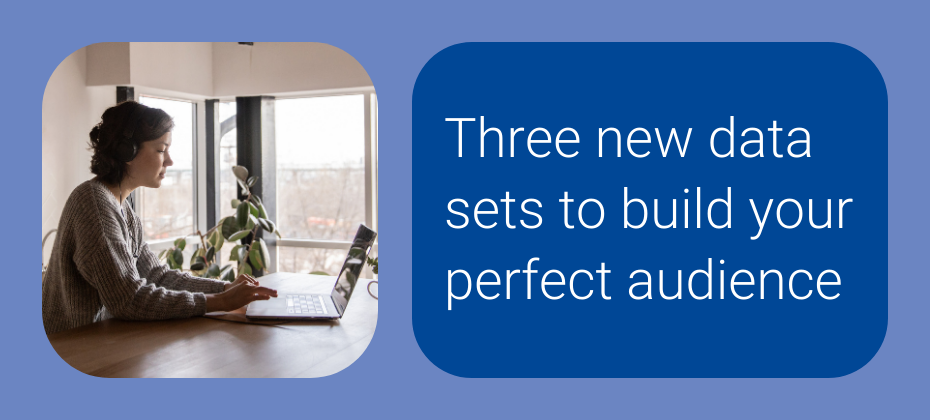
We spoke with industry leaders from Ampersand, Basis Technologies, Captify, Cuebiq, CvE, Fetch, Madhive, MiQ, and Samsung to gather insights on how innovations in data and identity are creating stronger consumer connections.
Here are five key insights to consider.
1. Build on trust with first-party data
Stricter privacy regulations and growing customer expectations mean businesses must rethink how they gather and use data. A robust first-party data strategy centers on gathering high-quality data, such as behavioral and transactional data. By using behavioral, lifestyle, and purchasing data, brands can craft personalized strategies that align with their goals. This approach balances effective targeting with building trust and complying with privacy rules.
Integrating identity solutions like Unified I.D. 2.0 (UID2) and ID5 into existing data strategies improves interoperability across platforms while keeping user privacy intact. These tools help create more effective campaigns.
“We’ve been preparing and leaning into educating our clients around the value of first-party data. These are very important and primary considerations in any of our campaigns.”
April Weeks, Basis Technologies
2. Align metrics with business goals
To demonstrate clear value, campaigns need to tie their outcomes to broader goals. Relying only on click-through rates or CPMs won’t cut it. Metrics that measure meaningful results, like driving sales or increasing customer retention, provide greater transparency than surface level data, like clicks or impressions.
A continuous feedback loop between targeting and measurement ensures campaigns can be refined to better align with business objectives. This feedback helps marketers understand who they are targeting and how those audiences are driving key business results. Shifting focus to metrics that resonate with stakeholders ensures that marketing efforts are evaluated based on their true contribution to the company’s objectives.
“The television industry has access to more data than ever before, and at Samsung Ads, our ACR technology helps us provide valuable insights about what content and ads are being viewed. This abundance of data enables us to support clients in aligning their campaigns with business objectives effectively.”
Justin Evans, Samsung Ads
3. Personalize experiences to boost engagement
Personalization drives stronger customer relationships by delivering tailored experiences to individual customer needs. Using data-driven insights to fine-tune offers and messaging makes interactions more relevant, strengthening brand loyalty. Combining behavioral, lifestyle, and transactional data provides a comprehensive understanding of the customer journey and ensures each touchpoint feels personal.
Testing and iterating on personalization strategies also helps identify which data and approaches yield the best results. Scaling these efforts means customers receive the right messaging at the right time, and businesses see better outcomes.
“Every business should be building a data strategy that thinks about the different versions of data that exist and how they bring that together. They don’t necessarily need to own all of it but have a clear rationale and strategy about where you’re using which data sets.”
Paul Frampton, CvE
4. Utilize advanced measurement tools for smarter decisions
Improving the effectiveness of campaigns starts with using sophisticated measurement tools to gain actionable insights. Using analytics like brand lift studies, foot traffic analysis, app download tracking, incrementality, and share of search allows marketers to understand the full impact of their efforts.
With these resources, teams can pinpoint what’s working, make real-time adjustments, and refine their approach. This adaptability ensures budgets are used as effectively as possible.
“We are playing a leading role in democratizing new tools for local advertisers. By mimicking the marketing funnel mentality, we’ve introduced solutions ranging from measuring brand lift to tracking foot traffic and app downloads.”
Luc Dumont, Madhive
5. Adapt quickly to stay competitive
The only constant in advertising is change. Adapting quickly to new technologies and consumer behaviors keeps businesses competitive. A culture of agility fosters innovation, making it easier to respond to industry shifts and discover new opportunities.
Companies that anticipate change and invest in modern data solutions position themselves for long-term growth. Whether it’s adjusting to privacy updates, exploring emerging tech, or staying flexible, businesses must continuously invest in adapting their platforms and strategies.
“Falling behind is not really an option. There’s always a change in advertising and in data where there’s a new horizon. The people who stay close to that and innovate will always follow it.”
Amelia Waddington, Captify
Shaping the future
Building meaningful consumer connections requires advertisers to combine robust data strategies with flexibility and innovation. By focusing on these five considerations, marketers can adapt to today’s challenges while preparing for what’s ahead.
Connect with our experts
Latest posts

Experian’s 2023 Holiday spending trends and insights report highlights three key holiday spending trends for the holiday season.

Discover the importance of convergent TV and how to bridge the gap between linear and streaming platforms from experts at 605 and Experian.

Experian Marketing Services’ August 2023 syndicated audiences update. We highlight a few of these audiences and how you can use them.